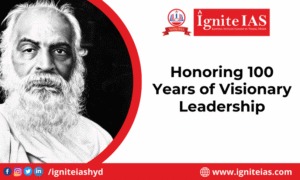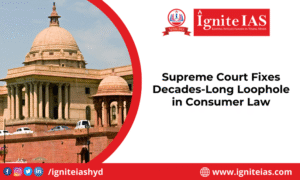Ever wondered how a century-old legacy can still light up your UPSC journey? At Ignite IAS, we’re proud to commemorate the All India Speakers’ Conference—a momentous occasion marking 100 years since Vithalbhai Patel became the first Indian Speaker of the Central Legislative Assembly. His visionary leadership still guides the way today, and we’re committed to nurturing UPSC leaders who rightly carry forward that flame.
Let’s walk through this with clarity, simplicity, and purpose—all in a conversational tone as if we’re preparing over a cup of chai.
| Sr | Heading |
|---|---|
| 1 | Why This Centenary Resonates with UPSC Aspirants |
| 2 | Who Was Vithalbhai Patel? |
| 3 | Why 1925 Matters—First Indian Speaker |
| 4 | All India Speakers’ Conference 2025: The Big Picture |
| 5 | Event Highlights That Inspire Future Leaders |
| 6 | Leadership Lessons from Vithalbhai Patel |
| 7 | Analogy Break: Beacon of Democratic Values |
| 8 | How This Fits Into Your UPSC Preparation |
| 9 | Ignite IAS: Keeping History & Democratic Ethos Alive |
| 10 | Why This Celebration Matters More Than Ever |
| 11 | Conclusion: Bridging Legacy with Future Leaders |
| 12 | FAQs for UPSC Aspirants |
1. Why This Centenary Resonates with UPSC Aspirants
You might wonder, “Why care about a 100-year-old event?” Simple—it’s not just history. For UPSC, this is a living example of institutional evolution, democratic foundations, and resilient leadership. It’s perfect material for GS papers and essays, showing how values shape governance across time.
2. Who Was Vithalbhai Patel?
Born in 1873, Vithalbhai was an eminent lawmaker, a co-founder of the Swaraj Party, and elder brother of Sardar Patel. In 1925, he was elected as the first Indian Speaker of the Central Legislative Assembly and brought reforms that still guide our parliamentary system today.
3. Why 1925 Matters—First Indian Speaker
Vithalbhai asserted legislative independence from the colonial executive. He established the Legislative Department and emphasized the neutrality of the Speaker, shaping institutional norms followed even today.
4. All India Speakers’ Conference 2025: The Big Picture
Held in Delhi’s Legislative Assembly, the two-day event commemorated Patel’s milestone. It drew Speakers and Deputy Speakers from across India and celebrated the legislative journey launched in 1925.
5. Event Highlights That Inspire Future Leaders
- Inauguration by Union Home Minister Amit Shah, who highlighted Patel’s role in shaping India’s democratic institutions and released a commemorative stamp.
- A thematic exhibition, “Veer Vithalbhai Patel Gaurav Gatha,” showcased archival documents, VR installations, flip-books, and life-sized statues of iconic leaders.
- Discussions like “India—Mother of Democracy” and “Role of Speakers in a Federal Setup” echoed his vision of democratic dignity.
6. Leadership Lessons from Vithalbhai Patel
- Institution above Influence: He ensured the Speaker’s chair remained neutral.
- Structural Reform: By establishing the Legislative Department, he reinforced governance procedures.
- Democratic Accountability: Speaker’s independence became a principle for parliamentary integrity.
7. Analogy Break: Beacon of Democratic Values
Think of Vithalbhai as the lighthouse guiding a ship through stormy waters. His principles—impartiality, procedural clarity, and institutional strength—were the steady light that still steers our parliamentary system today.
8. How This Fits Into Your UPSC Preparation
This centenary is a goldmine for essays and GS answers—whether it’s about institutional design, parliamentary ethics, or legislative heritage. weave it into your answers: it’s a shining example that goes beyond textbooks.
9. Ignite IAS: Keeping History & Democratic Ethos Alive
At Ignite IAS, we don’t just teach—you experience. We bring such events into classroom discussions, answer writing modules, and moral leadership lessons. Because a coaching that roots you in values and history is a coaching that builds leaders.
10. Why This Celebration Matters More Than Ever
In times when democratic literacy and respect for institutions are tested, this centenary reminds us why history matters—we’re reminded that democratic traditions are not inherited; they’re built and continued. And at Ignite IAS, that legacy fuels our teaching.
Conclusion: Bridging Legacy with Future Leaders
Honoring Vithalbhai Patel’s centenary is more than a moment—it’s a mission. As future civil servants, you’re not just exam-takers; you’re inheritors of a democratic legacy. And at Ignite IAS, we’re proud to guide you with that torch, not just in your preparation, but for India’s tomorrow.
FAQs for UPSC Aspirants
1. Why is Vithalbhai Patel called a pioneer of parliamentary traditions?
He was the first Indian Speaker, advocating institutional autonomy, creating the Legislative Department, and reinforcing the Speaker’s neutrality—shaping structures still followed today.
2. What was special about the All India Speakers’ Conference 2025?
It marked 100 years since Patel took office as Speaker. It featured high-profile inaugurations, exhibitions, discussions, and commemorative releases that celebrated democratic values and legislative heritage.
3. How can UPSC aspirants use this event in their answers?
Use it as a case study for constitutional institutions, leadership principles, or democratic continuity—particularly in governance, ethics, and polity topics.
4. What lessons does Patel’s leadership offer for civil servants?
Impartiality, procedural reform, and institutional strength—qualities every public servant should uphold.
5. How does Ignite IAS make this history tangible for students?
We integrate such events into lessons, provide contextual analysis, and help you apply them in essays—turning history into clarity and conviction.




